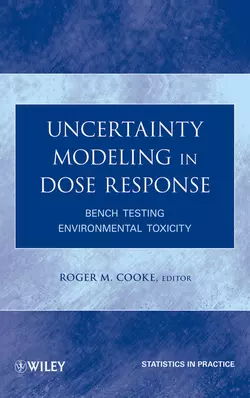Uncertainty Modeling in Dose Response

Тип: PDF книга
Жанр: Математика
Язык: на английском языке
Стоимость: 17205.50 ₽
Издательство: John Wiley & Sons Limited
Дата публикации: 25.04.2024
Отзывы: Пока нет Добавить отзыв
О книге: A valuable guide to understanding the problem of quantifying uncertainty in dose response relations for toxic substances In today′s scientific research, there exists the need to address the topic of uncertainty as it pertains to dose response modeling. Uncertainty Modeling in Dose Response is the first book of its kind to implement and compare different methods for quantifying the uncertainty in the probability of response, as a function of dose. This volume gathers leading researchers in the field to properly address the issue while communicating concepts from diverse viewpoints and incorporating valuable insights. The result is a collection that reveals the properties, strengths, and weaknesses that exist in the various approaches to bench test problems. This book works with four bench test problems that were taken from real bioassay data for hazardous substances currently under study by the United States Environmental Protection Agency (EPA). The use of actual data provides readers with information that is relevant and representative of the current work being done in the field. Leading contributors from the toxicology and risk assessment communities have applied their methods to quantify model uncertainty in dose response for each case by employing various approaches, including Benchmark Dose Software methods, probabilistic inversion with isotonic regression, nonparametric Bayesian modeling, and Bayesian model averaging. Each chapter is reviewed and critiqued from three professional points of view: risk analyst/regulator, statistician/mathematician, and toxicologist/epidemiologist. In addition, all methodologies are worked out in detail, allowing readers to replicate these analyses and gain a thorough understanding of the methods. Uncertainty Modeling in Dose Response is an excellent book for courses on risk analysis and biostatistics at the upper-undergraduate and graduate levels. It also serves as a valuable reference for risk assessment, toxicology, biostatistics, and environmental chemistry professionals who wish to expand their knowledge and expertise in statistical dose response modeling problems and approaches.